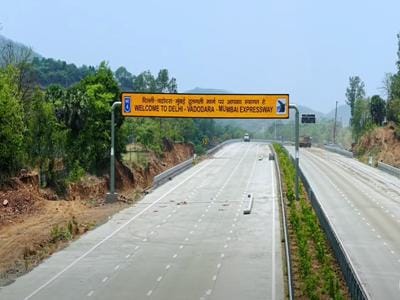Top EV Travel Highways

Top EV Travel Highways Powering Electric Vehicle Journeys in India
India’s transition to electric mobility is accelerating rapidly with the development of EV-ready highways, transforming how we travel long distances. With robust EV highway infrastructure and the support of state and national EV policies, the country is now home to several key expressways and corridors equipped with fast charging stations in India. These highways are paving the way for electric vehicle travel in India by eliminating range anxiety and promoting sustainable transportation. Below are the top EV routes in India making electric journeys smoother than ever.
1. Delhi–Mumbai Expressway (DME)
The Delhi–Mumbai Expressway is India’s first electric highway, spanning 1,386 km. With fast-charging stations placed every 40–60 km, it ensures uninterrupted travel for electric cars, buses, and even trucks. Integrated solar panel energy generation adds to its green footprint. The DME not only reduces travel time by 12 hours but also sets a benchmark in EV charging highways India.
2. Mumbai–Nagpur Samruddhi Mahamarg
This 701-km expressway hosts 21 high-capacity EV charging stations. Developed by MSRDC and Tata Power, the infrastructure is solar-powered and scalable, designed for both passenger and commercial vehicles. AI-enabled traffic monitoring makes this a smart and efficient electric vehicle travel India corridor.
3. Bengaluru–Chennai Expressway
Under the Bharatmala project, this 262-km expressway is being built with future-ready EV infrastructure. Charging points every 60 km make it easy for travelers to move between Karnataka and Tamil Nadu with zero emissions.
4. National Highways for Electric Vehicles (NHEV)
The NHEV initiative aims to convert 5,500 km of highways into electric-ready corridors. It features multi-modal charging hubs and 121 advanced fast-charging stations. Real-time data, maintenance alerts, and billing integration provide a seamless EV experience.
5. Hyderabad–Bengaluru–Chennai Triangle
ChargeZone’s supercharging corridor on this route offers DC fast chargers every 100–150 km. This is a vital network for fleet operators and long-distance travelers, supported by user-friendly mobile apps for booking and payments.
6. Delhi–Agra–Lucknow–Kanpur Corridor
Part of the NHEV expansion, this 500-km stretch is getting rapidly electrified with help from Uttar Pradesh’s progressive EV policies. The presence of high-speed charging stations is enabling smooth, long-distance EV travel.
7. Delhi–Jaipur Expressway
At 270 km, this is another NHEV pilot route, equipped with dedicated EV lanes and smart grid-powered charging stations. The data collected here helps in setting benchmarks for EV charging highways India.
8. Chennai–Salem Expressway
A proposed 277-km green corridor, this route will feature solar-powered fast-charging stations every 30 km. It will support battery swapping, exclusive EV parking, and emergency charging services.
9. Pune–Ahmednagar–Aurangabad Corridor
As part of Maharashtra’s EV policy, this corridor will host AC and DC chargers every 25–30 km, catering to two-wheelers, cars, and commercial vehicles. The plan includes over 1,500 public charging points by 2025.
10. Delhi–Meerut–Haridwar Corridor
A critical route for religious tourism, this 280-km stretch is being electrified with over 15 charging stations. The Uttarakhand government is investing in EV highway infrastructure to enhance intercity travel experiences.
Why EV-Ready Corridors Matter ?
These top EV routes in India exemplify how infrastructure can drive a green revolution. Reliable, frequent fast charging stations in India reduce range anxiety and ensure operational efficiency for EV fleets. By integrating solar energy, smart grid tech, and data analytics, these routes are shaping the future of electric vehicle travel in India.
As EV charging highways India continue to grow, travelers can expect cleaner air, lower carbon emissions, and a more sustainable road network.
